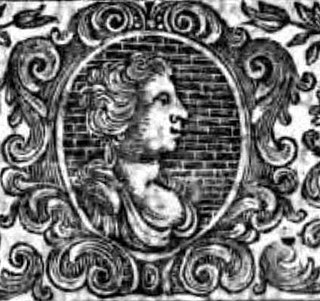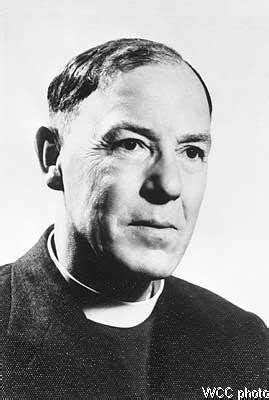A Quote by Mark Twain
The kernel, the soul ? let us go further and say the substance, the bulk, the actual and valuable material of all human utterances ? is plagiarism. For substantially all ideas are second-hand, consciously and unconsciously drawn from a million outside sources, and daily used by the garnerer with a pride and satisfaction born of the superstition that he originated them; whereas there is not a rag of originality about them anywhere except the little discoloration they get from his mental and moral calibre and his temperament, and which is revealed in characteristics of phrasing.
Quote Topics
About
Actual
Anywhere
Born
Bulk
Characteristics
Daily
Drawn
Except
Further
Get
Go
Hand
His
Human
Ideas
Kernel
Let Us
Little
Material
Mental
Million
Moral
Originality
Outside
Plagiarism
Pride
Rag
Revealed
Satisfaction
Say
Second
Second-Hand
Soul
Sources
Substance
Superstition
Temperament
Them
Us
Used
Valuable
Whereas
Which
Related Quotes
Wherein lies a poet's claim to originality? That he invents his incidents? No. That he was present when his episodes had their birth? No. That he was first to repeat them? No. None of these things has any value. He confers on them their only originality that has any value, and that is his way of telling them." Mark Twain "...every literature, in its main lines, reflects the chief characteristics of the people for whom, and about whom, it is written.
This is a man with an old face, always old... There was pathos, in his face, and in his eyes. The early weariness; and sometimes tears in his eyes, Which he let slip unconsciously on his cheek, Or brushed away with an unconcerned hand. There were tears for human suffering, or for a glance Into the vast futility of life, Which he had seen from the first, being old When he was born.
Wherein lies a poet's claim to originality? That he invents his incidents? No. That he was present when his episodes had their birth? No. That he was first to repeat them? No. None of these things has any value. He confers on them their only originality that has any value, and that is his way of telling them.
It is visible then that it was not any Heathen Religion or other Idolatrous Superstition, that first put Man upon crossing his Appetites and subduing his dearest Inclinations, but the skilful Management of wary Politicians; and the nearer we search into human Nature, the more we shall be convinced, that the Moral Virtues are the Political Offspring which Flattery begot upon Pride.
The late British-born philosopher Alan Watts, in one of his wonderful lectures on eastern philosophy, used this analogy: "If I draw a circle, most people, when asked what I have drawn, will say I have drawn a circle or a disc, or a ball. Very few people will say I've drawn a hole in the wall, because most people think of the inside first, rather than thinking of the outside. But actually these two sides go together--you cannot have what is 'in here' unless you have what is out there.' " In other words, where we are is vital to who we are.
Art leads to a more profound concept of life, because art itself is a profound expression of feeling. The artist is born, and art is the expression of his overflowing soul. Because his soul is rich, he cares comparatively little about the superficial necessities of the material world; he sublimates the pressure of material affairs in an artistic experience.
Let me make it quite clear that when Christians say the Christ-life is in them, they do not mean simply something mental or moral. When they speak of being "in Christ" or of Christ being "in them", this is not simply a way of saying that they are thinking about Christ or copying Him. They mean that Christ is actually operating through them; that the whole mass of Christians are the physical organism through which Christ acts--that we are His fingers and muscles, the cells of His body.
Let's just call things what they are. When a man's love of finery clouds his moral judgment, that is vanity. When he lets a demanding palate make his moral choices, that is gluttony. When he ascribes the divine will to his own whims, that is pride. And when he gets angry at being reminded of animal suffering that his own daily choices might help avoid, that is moral cowardice.
The science of psychology has been far more successful on the negative than on the positive side... It has revealed to us much about man's shortcomings, his illnesses, his sins, but little about his potentialities, his virtues, his achievable aspirations or his psychological health... We must find out what psychology might be if it could free itself from the stultifying effects of limited, pessimistic and stingy preoccupations with human nature.
Mary adored Jesus as the Bridegroom of souls. Union is the final purpose of love. Jesus by the gift of His substance in the Eucharist unites Himself with our souls as with His dear spouses. As a Bridegroom, He gives them all His possessions, His name, His heart, His whole Self, but on the condition that the soul reciprocates. The soul, His spouse, shall live for Him only
Such are the differences among human beings in their sources of pleasure, their susceptibilities of pain, and the operation on them of different physical and moral agencies, that unless there is a corresponding diversity in their modes of life, they neither obtain their fair share of happiness, nor grow up to the mental, moral, and aesthetic stature of which their nature is capable.
What we said publicly is that we know that Saddam Hussein has chemical weapons, he's used them; we know about his biological weapons programs; and in the nuclear equation, left to his own devices, with no fissile material, by the end of the decade, he'll have a nuclear weapon. But if fissile material is provided to Saddam Hussein, he'll have a nuclear weapon within a year, so I'd say the year is the outside timetable.
.. since it was true that study, even when done properly, can only teach us what wisdom, right conduct and determination consist in, they wanted to put their children directly in touch with actual cases, teaching them not by hearsay but by actively assaying them, vigorously molding and forming them not merely by word and precept but chiefly by deeds and examples, so that wisdom should not be something which the soul knows but the soul's very essence and temperament, not something acquired but a natural property.



































